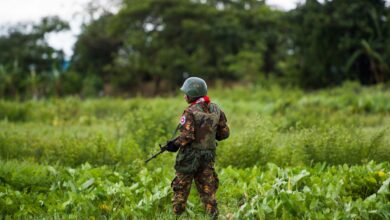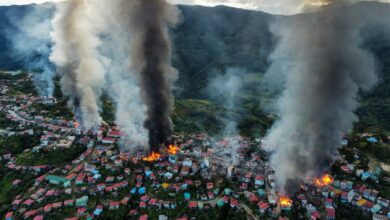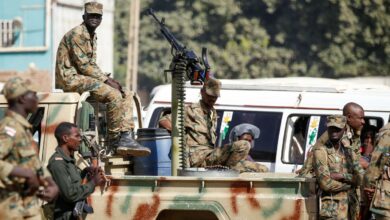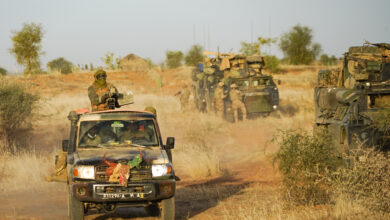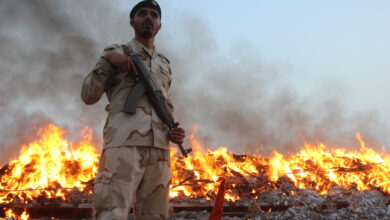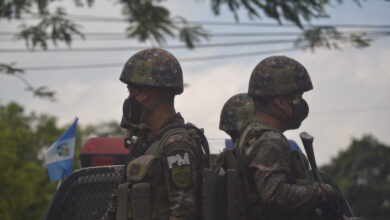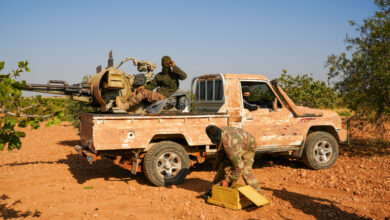An investigation by the U.N. mission in Mali has concluded that Malian soldiers attached to the G5 Sahel Joint Force executed 12 civilians at a Boulikessi market, the mission said in a release.
On May 19, soldiers from soldiers from the Malian battalion of the G5 Sahel Joint Force reportedly killed civilians at the weekly Boulikessi fair, in retaliation for the death of one of their own, who was shot dead by an unidentified element, the Tuesday, June 26 release noted.
At the time, a former Malian minister told AFP that according to two witnesses, “an armed man shot a Malian soldier,” while another source said that afterwards at least 12 civilians at Boulikessi market were killed.
The army said three Malian soldiers and 12 “terrorists” were killed in fighting at an army camp near the border with Burkina Faso. But locals said the dead were all civilians and the army later released a new statement that spoke of 12 “people” killed.
The Minusma mission launched an investigation into this and other incidents following “recurrent allegations of extrajudicial summary executions, enforced disappearances, kidnappings and the destruction and burning of property, coupled with deadly intercommunal violence,” the release said.
The investigation concluded that Malian soldiers “summarily and/or arbitrarily executed 12 civilians at the Boulikessi cattle market,” the release said, adding that a report was sent to the government of Mali.
The G5 Sahel Joint Force and Mali’s Gendarmerie Nationale have established of a joint commission of inquiry and the military prosecutor in Mopti has opened a judicial inquiry.
Special Representative of the Secretary-General and head of Minusma Mahamat Saleh Annadif called on Malian authorities to “ensure that the ongoing judicial investigation can be carried out as soon as possible.” He urged both the Malian authorities and the G5 Sahel Joint Force to “conduct their military operations in accordance with international human rights law and international humanitarian law and to protect the civilian population.”
Last week, Mali’s Defense Minister Tiena Coulibaly admitted that soldiers may have been involved in killings in other incidents in Kobaka and Nantaka in the country’s unstable center, after the discovery of mass graves and accusations of summary executions by government troops.
An NGO called Kisal said 25 people from the Fulani ethnic group, who are mainly herders, had been picked up by the army and that 25 bodies had been found in three mass graves.
The Malian army is often accused of making arbitrary arrests and carrying out extra-judicial executions in its fight against jihadists in the north of the country.
Tensions and violence have intensified in the central Mopti area over the past three years, with clashes between Fulani herdsmen and sedentary farmers from other ethnic groups who accuse the pastoralists of colluding with jihadists.
The G5 Sahel, comprised of Burkina Faso, Chad, Mali, Mauritania and Niger, was launched in 2014 to improve cooperation on development and security in West Africa.
They launched the G5 Sahel joint counter-terrorism force in July 2017. Its mandate is to combat terrorism, transnational organized crime and human trafficking in the Sahel area.
The five nations aim to deploy 5,000 troops in the region along the southern edge of the Sahara desert to work alongside thousands of troops deployed to France’s Operation Barkhane in the wider Sahel and the U.N.’s Minusma peacekeeping mission in Mali.
Last month Niger’s defense minister said the force was ready to launch operations, but a push by France and U.N. Secretary-General Antonio Guterres for direct funding was rejected by the United States at the Security Council.
On June 13, the European Union’s diplomatic chief Federica Mogherini proposed a new €10.5 billion ($12.4 billion) European Peace Facility that could pay for military equipment for partners in crisis zones such as Africa’s Sahel region, including the G5 Sahel Joint Force.
Mogherini said the fund is needed to make its training missions in Africa more effective and to enable it to contribute to peacekeeping efforts elsewhere in the world.
However, an E.U. official told AFP that any decision to pay for weapons would take into account the bloc’s human rights values and and would only be provided as part of a package alongside training.



